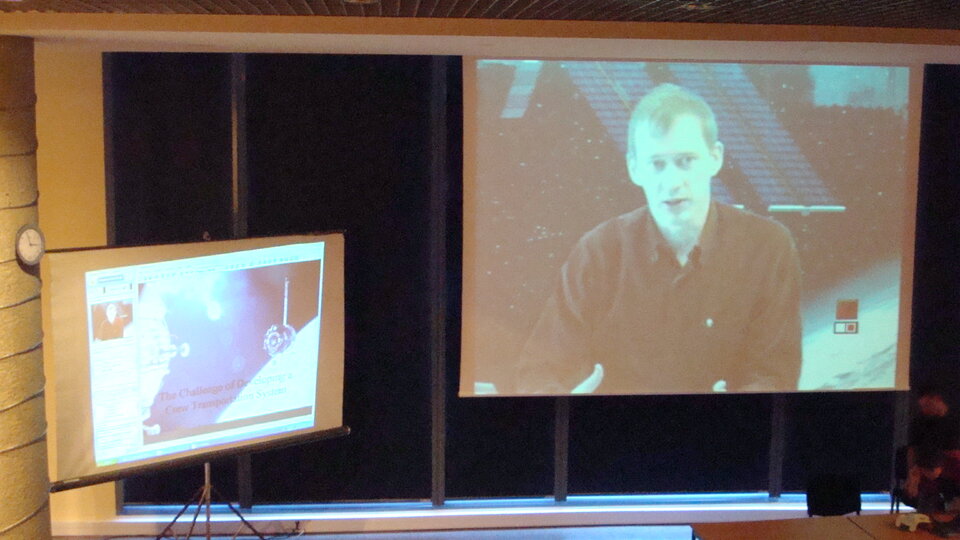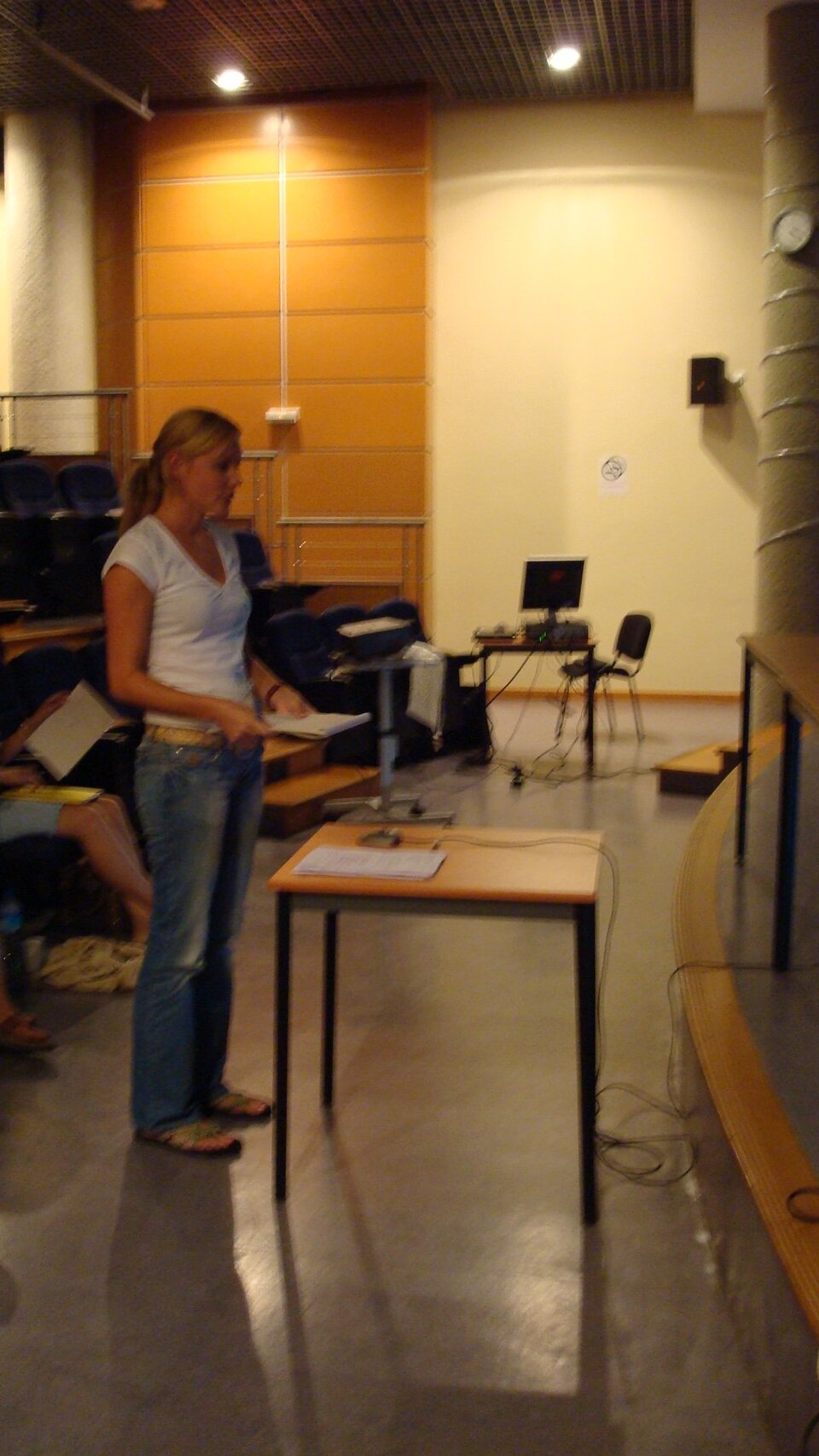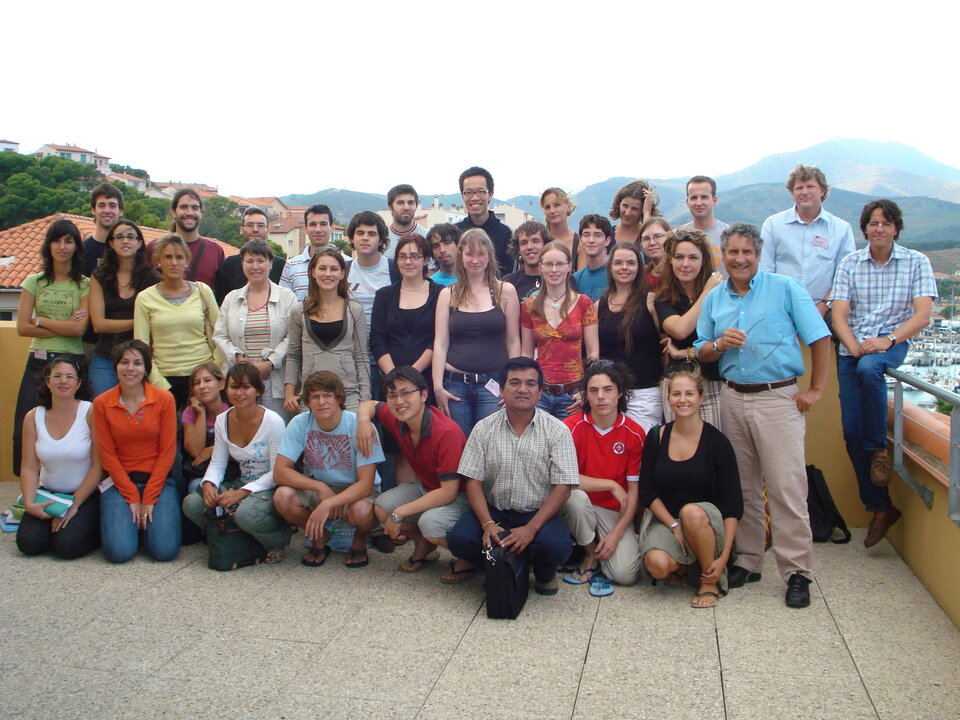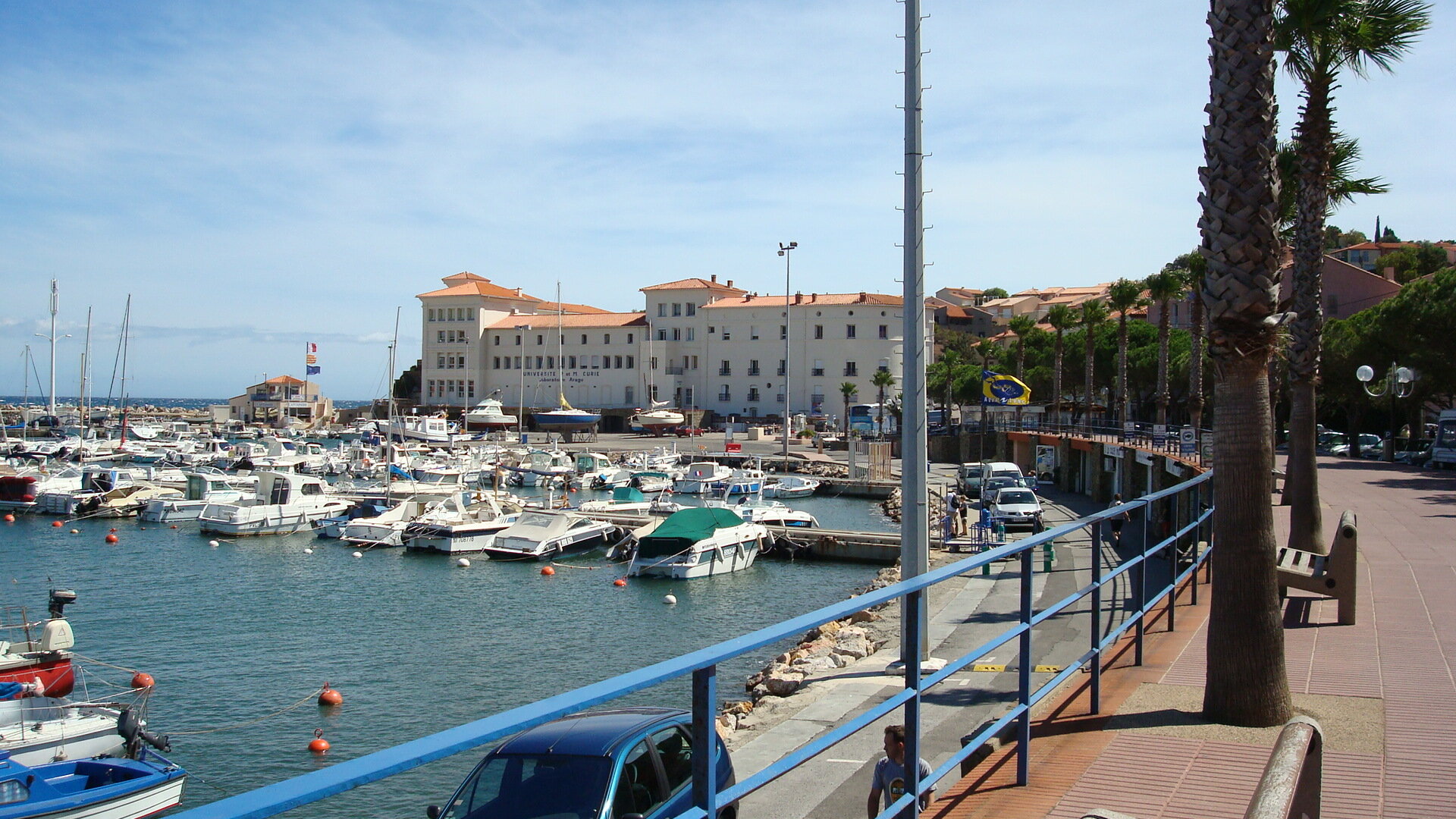Life in Space 2007: European summer course for life science students
The annual summer course 'The Origins of Life and Life in Space' was held from 28 August to 7 September 2007 at the Laboratoire Arago, in Banyuls-sur-mer, France. The main goal was to introduce the students to the range of space-related biological disciplines in which research is being carried out in Europe.
Thirty-six life science students from top European universities applied for the course and were selected to participate. During their stay in Banyuls the students attended lectures as well as data analysis workshops. They worked in teams on their own projects to design a life science experiment.
Topics of the daily lectures included the origins of life, the space environment, and the role of gravity in molecular, cellular, animal and plant behaviour.
ESA contribution

Life in Space is organised by the Université Pierre-et-Marie-Curie, Paris VI, together with a consortium of European universities. ESA supports the Life in Space summer course by organising lectures and an e-learning session with an ESA astronaut, grants for teachers, and the provision of computers during the course.
ESA expert, Dr Oliver Angerer discussed the physiological and psychological challenges during long-duration exploration missions. Mr Patrice Amadieu informed the students about ESA, the International Space Station, Columbus and the Automated Transfer Vehicle.
Ms Merlijne Berntsen explained the ESA SUCCESS Student Contest, which can enable a student to develop an experiment to be flown to the ISS. The 4th SUCCESS Student Contest was launched in September 2007.
E-learning session

ESA astronaut Frank De Winne was invited to participate in the e-learning session. A real time connection was established between ESA's European Astronaut Centre in Cologne, Germany, and the auditorium in Banyuls. During the presentation De Winne discussed the challenges of designing a Crew Transportation System from an engineering point of view.
The students were given the opportunity to ask questions among which were: the risk of orbiting debris, how to become an astronaut, and what he thought about the idea to send world leaders into space making them aware of the vulnerability of Earth and its atmosphere.
Final presentations

On the final day the students presented their experiment design, which they had been working on throughout the two weeks.
Among the selection of experiments were: growing food in space, bone degeneration in space, the effects of microgravity on cells, and how to create an Earth environment on Mars.
The course concluded with the distribution of certificates to the students who participated.

The students were enthusiastic about the summer course. According to Latt Shahril Mansor, a biotechnical student from the University of Nottingham, the course broadened his knowledge: "Technical and operational aspects as discussed in the lectures are vital for scientists to know because it makes you aware of the possibilities and limits before proposing any space research experiment".
The experiment design projects were also appreciated. Tristan Wagner (University Paris VI) and Melanie Lüllsdorf (University of Bonn) shared the opinion that it is a "very good learning experience to work on a project in a multinational team of students with different study backgrounds".
The next Life in Space summer course is scheduled to take place at the end of August 2008. For more information on how to register for next year's course, and for more general information, please visit websites linked on the right menu. If you have any questions you can contact Merlijne Berntsen (ESA): Merlijne Berntsen: merlijne.berntsen@esa.int , or Prof. Marie-Christine Maurel (Université Pierre-et-Marie-Curie): maurel@ijm.jussieu.fr.




